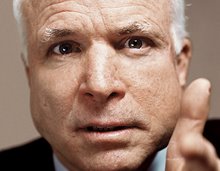My knowledge of unions comes mostly from the baseball-bat tactics of the Sopranos, so when I read Deroy Murdock's latest column about card check, I was surprised but not shocked.
Card check, as embodied in the Employee Free Choice Act, allows worksites to become unionized if union reps collect authorization cards (A cards) from a majority of workers. Sounds harmless, right? The harm is that these cards need not be signed in secret, thus overriding the timeless tradition of secret-ballot elections.
Pat Cleary of the National Association of Manufacturers fills in the blanks:
The process of gathering A cards, as you might imagine, is not entirely free of coercion. The union visits employees face-to-face, often at their homes and—how best to put this?—urges them to sign the cards.
Why spurn the principle of privacy? Give the man credit for honesty: "We can’t win that way anymore," admits Joe Hansen, president of the United Food and Commercial Workers.
Hansen's congressional allies are less forthright. As Deroy reports, in a 2001 letter to Mexican officials, 16 House Democrats urged the "use [of] the secret ballot in all union recognition elections." They added, "The secret ballot is absolutely necessary in order to ensure that workers are not intimidated into voting for a union that they might not otherwise choose."
Of the letter's 11 signers still in Congress, all voted to deny Americans this "absolutely necessary" prerogative they wanted for Mexicans.


